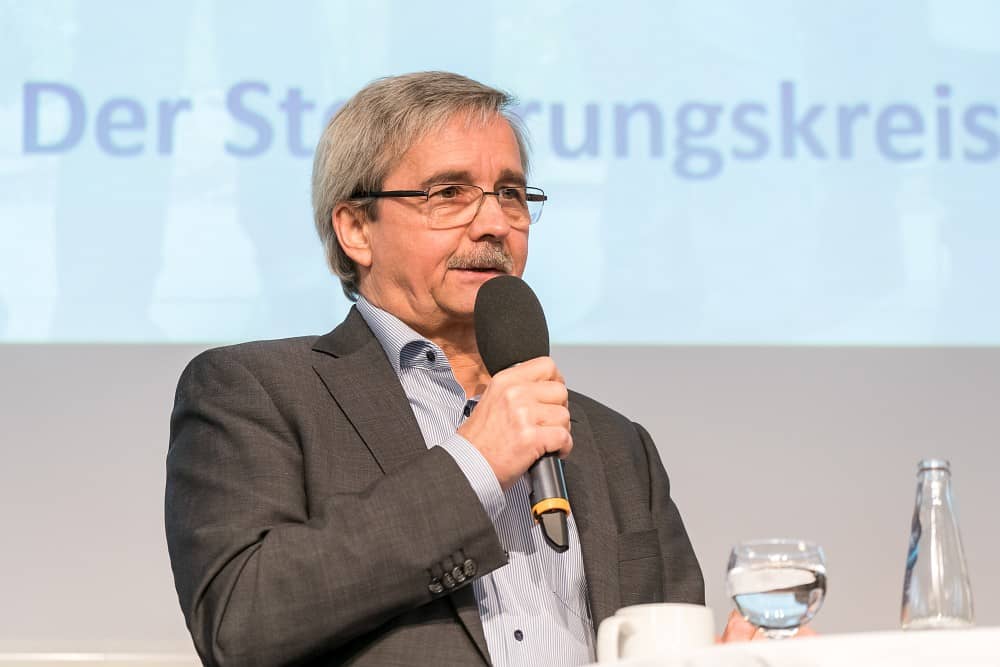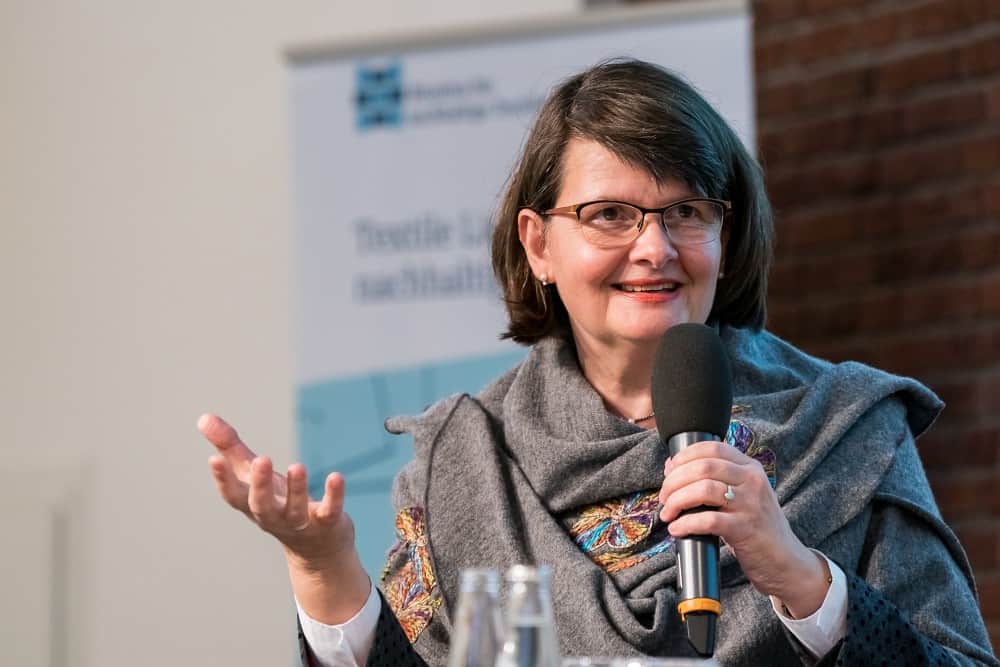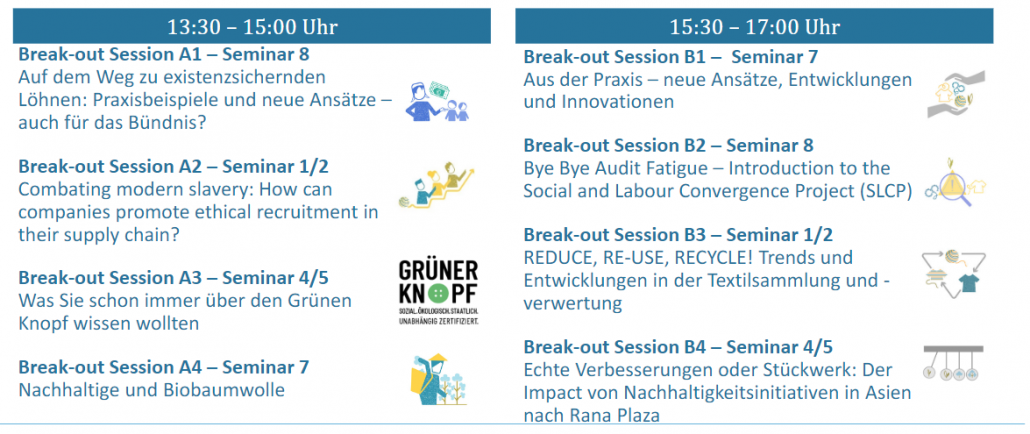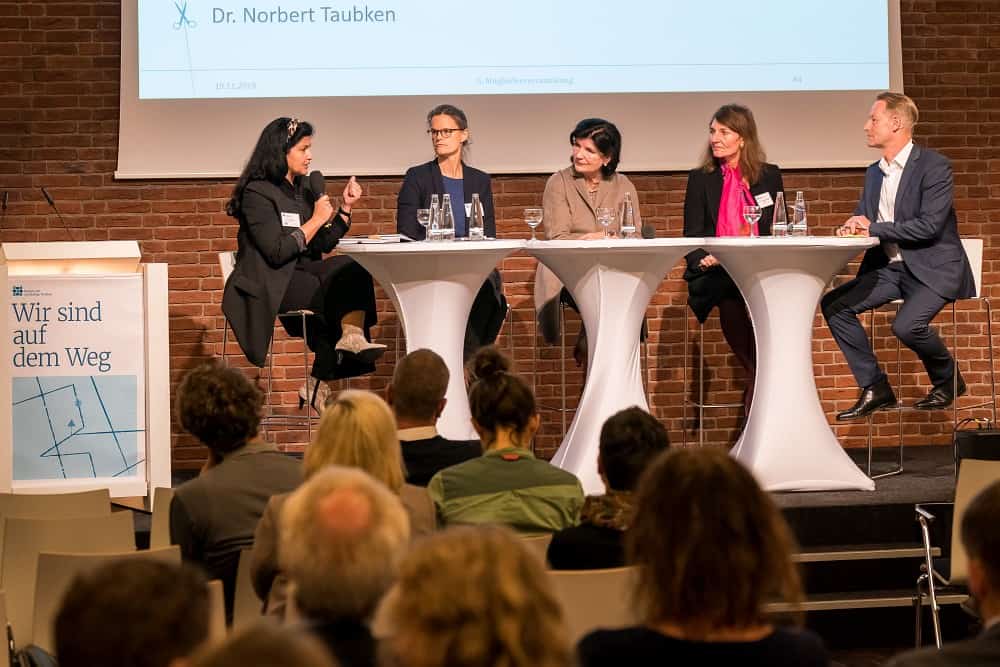Achieving more together - 5th Members' Meeting
Achieving more together - 5th Members' Meeting
Some agenda items are set at each Members’ Meeting: Greetings, annual report, review and outlook. An innovation this year was that the members could ask their questions to the Steering Committee and the Partnership Secretariat via an online tool. Many of the questions related to the new Review Process, which from 2020 will focus even more on the due diligence approach than before. Steering Committee moderator Frank Zach reported on the intensive negotiations in the Steering Committee. It was not until the day before the Members’ Meeting that the Partnerships decision-making body met in Berlin and adopted the overall concept of the revised Review Process.

In which direction should the Partnership develop in the future? Zach replied to this question: "As a multi-stakeholder initiative, we cannot conduct all debates, but we should be open to new debates, for example on sustainable fibres. We also need a great deal of external expertise for this. At the same time, however, we must be careful not to overdo it."
Jürgen Janssen, head of the Partnership Secretariat, described the future work of the Partnership: "We will continue our efforts to implement the due diligence approach across all three areas our work in the Partnership. Yesterday's decisions on the Review Process from 2020 clearly confirmed this once again. The recognition of our commitment to other initiatives and standards is also being intensively examined, particularly in order to avoid duplication of effort and increase our leverage. Wherever possible, we always ask the question of whether we can deal with issues and processes within the Partnership ourselves, or whether this can be done better through cooperation and recognition."
Members were invited to comment on their membership and involvement in Partnership initiatives via an online tool. 64% of the members underlined the basic idea of the Partnership and completed the sentence "We are members of the Partnership because..." with "because we achieve more together than alone". It was followed by "because network sharing is helpful to my work" (50%) and "because membership helps me advance sustainability issues in my organisation" (39%).
On participation in Partnership initiatives - "What factors would need to change for you to participate in a Partnership initiative? - the most important answers were: " Partnership initiatives that have more to do with our core business" (57%), "initiatives that are easier to participate in with less bureaucracy" (48%) and that you need "more time" (34%). These are important indications for the Steering Committee when it deals with the adjustments to Pillar 2 of the Partnership work (joint engagement).
Frank Zach also said about the concept of Partnership Initiatives: "Even below the threshold of a Partnership Initiative, there is a lot of motivation among the members to make a difference. In 2020, we will develop instruments that will make it possible to tackle urgent problems and give the necessary impetus. This must also be possible in addition to Partnership Initiatives and that is what we want to get going."
"We want a self-supporting upswing through fair trade with our partner countries, decent work and transparent supply chains," Dr. Maria Flachsbarth, Parliamentary State Secretary at the BMZ, described the Ministry's guidelines, also with a view to the National Action Plan for the Economy and Human Rights (NAP) and the German EU Council Presidency 2020.
Above all, she said, living wages were a major concern for her in order to break the cycle of poverty. For the next five years of the Textiles Partnership, she hopes for "more involvement in the Partnership Initiatives, a growing Textiles Partnership and the establishment of a European platform and as an important driver for sustainable and fair global supply chains. To achieve this, the BMZ will continue to support the Partnership ambitious work."

From the stage and from the plenum, the members were divided into eight break-out sessions in the afternoon. They used these sessions to deal with various topics, to exchange ideas and to deepen their knowledge. These sessions were on the agenda at the general meeting:

During the evening panel discussion, four female lawyers addressed the pointed question: "If there is a law, you don't need any more partnerships and buttons! Moderator Norbert Taubken chaired the discussion between Johanna Kusch of Germanwatch, Prof. Dr. Stefanie Lorenzen of the Berlin School of Economics and Law, Dr. habil. Birgit Spiesshofer from Dentons and Anosha Wahidi from BMZ. With clearly recognisable differences in focus, the panelists emphasised the importance of intelligent interaction between the various levers to improve the situation in the supply chains. Here, voluntary initiatives such as the Partnership for Sustainable Textiles with its differentiated, flexible and broad-based approaches play just as important a role as a credible, clear consumer approach such as the Grüner Knopf (Green Button) strives for and a framework-setting, effective regulation.



